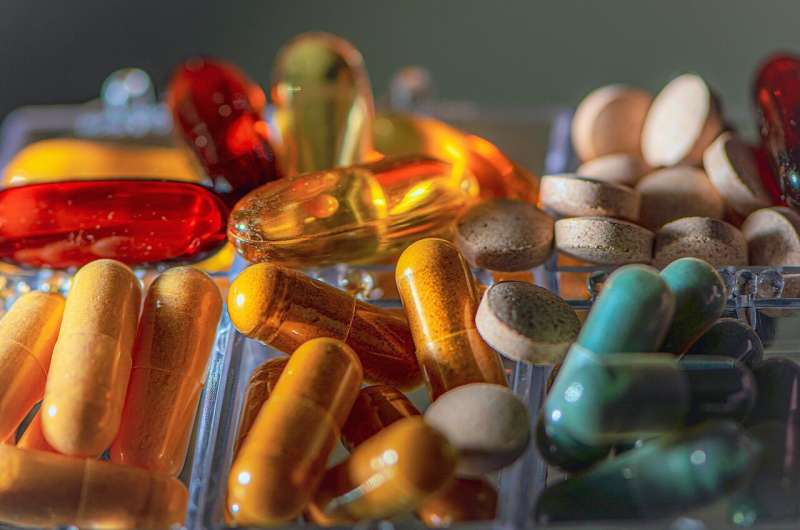This article has been reviewed according to Science X's editorial process and policies. Editors have highlighted the following attributes while ensuring the content's credibility:
fact-checked
trusted source
proofread
How are vitamin supplements produced, and is it better to get vitamins through foods instead?

Though people often refer to vitamin supplements, it's more accurate to call them dietary supplements. That's because most of these supplements also include minerals such as iron and calcium in addition to vitamins, even if they are labeled as multivitamins.
There are a variety of approaches used to make dietary supplements. These include isolation from plants and animals, production by microorganisms, and synthesis in a test tube. In most cases they are then extracted, isolated, and purified. When purchasing dietary supplements, it is a good idea to look for some type of third-party testing and certification, such as that from USP, the United States Pharmacopeia.
The bioavailability of a nutrient, that is, how much is absorbed into your body, depends on many factors. In some cases, the bioavailability has to do with the form in a specific food or what other nutrients are consumed at the same time.
For example, due to differences in chemical form, iron is better absorbed from animal than plant foods. Its bioavailability is increased if there is a good source of vitamin C eaten around the same time. Similarly for calcium, it is better absorbed from dairy than plant foods, but the extent of absorption is very dependent on the presence of vitamin D.
In some cases, how food is prepared can alter the bioavailability of nutrients. A higher proportion of the carotenoids that we convert to vitamin A are available when foods like carrots and tomatoes are cooked rather than eaten raw. Alternatively, overcooking vegetables can destroy vitamin C content due to the heat, and exposing milk to light can destroy riboflavin, hence the opaque milk containers.
In most cases, we absorb as much of a nutrient as we need from food. However, in some cases, the synthetic form of a nutrient is more bioavailable than the natural form, such as folic acid that is added to bread products and rice versus folate naturally occurring in foods such as dark green leafy vegetables and beans.
But for most people, for multiple reasons, it is best to get your nutrients from foods and beverages that collectively comprise your dietary pattern, rather than supplements.
Consuming a food-based healthy dietary pattern makes it more likely you will fulfill all your vitamin and essential mineral needs, avoids getting too much of any one nutrient, provides many compounds we refer to as phytochemicals (which may be good for us but have yet to be fully evaluated), is associated with lower risk of chronic diseases such as heart disease and type 2 diabetes, and is enjoyable.
There are many ways to formulate a healthy dietary pattern consistent with personal preferences as well as cultural and ethnic backgrounds. The basic components include whole grains, vegetables and fruits, legumes (beans), fish, low- and fat-free dairy products, and if desired, lean meat, while keeping choices low in added sugar, salt, and refined grains.




















